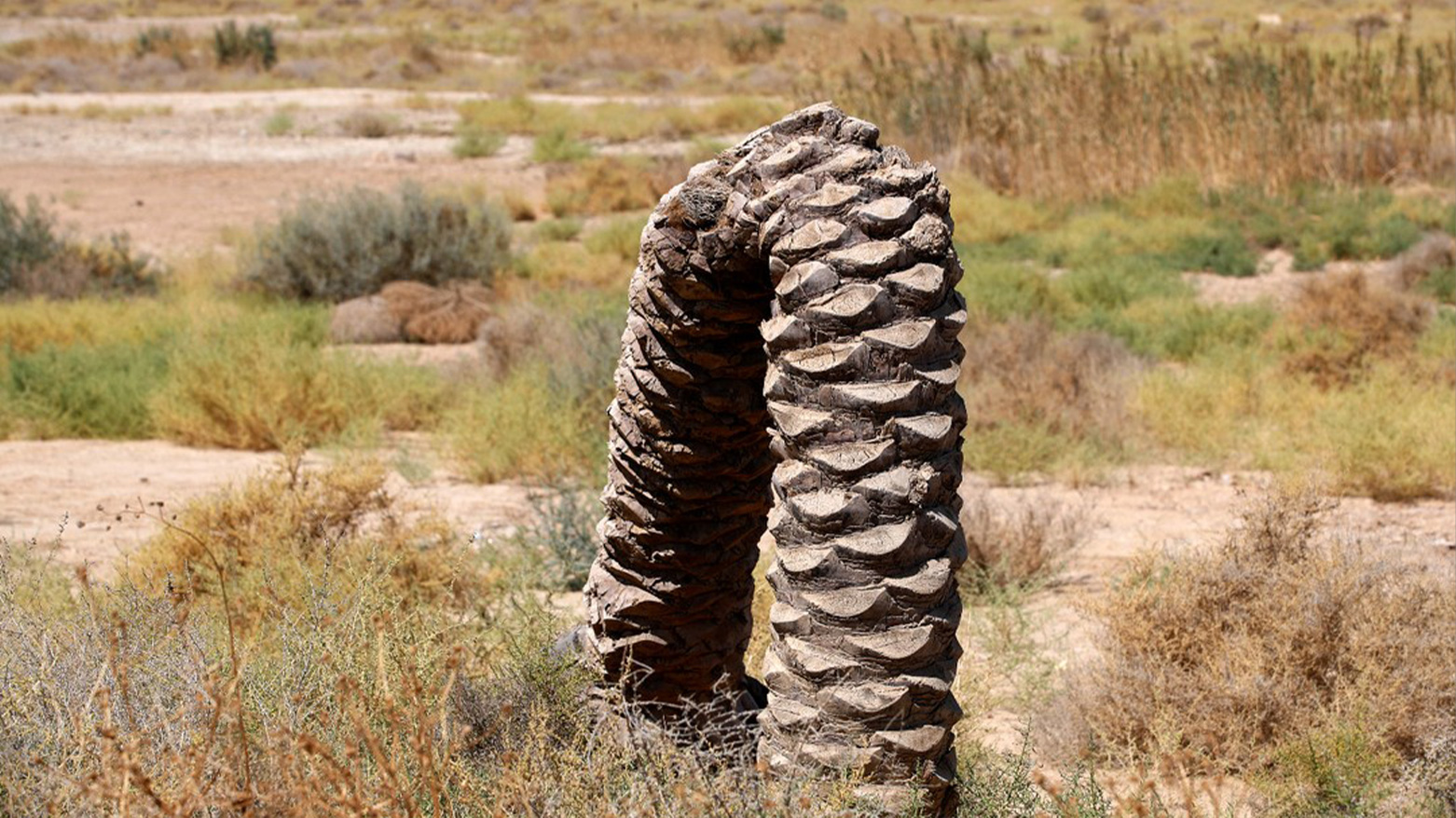Concrete Over Country: Iraq’s Green Vanishes
The Iraqi Ministry of Environment recently confirmed what most residents already knew: more than half of the city’s green spaces have been erased since 2023, casualties in a battle where real estate wins and shade loses.

By Kamaran Aziz
ERBIL (Kurdistan24) – Iraq is rapidly approaching an ecological cliff edge, propelled by an ambitious mix of unchecked urban expansion, relentless drought, and a nation-wide green cover vanishing act. Once known for its lush date palms and fertile lands, the country is now reinventing itself as the world’s premier exhibition in how to destroy an ecosystem in record time.
Climate change and chronic mismanagement—long-time partners in crime—have teamed up once again, this time to choke Iraq’s urban centers with dust storms, water scarcity, and a creeping desert that refuses to respect city limits. From Baghdad to Basra, concrete has become the new foliage, and trees are fast becoming relics of memory, mentioned mostly in nostalgic poetry and frustrated WhatsApp groups.
Baghdad, the capital, now suffocates under the weight of its own unchecked growth. Its population has surged from 5 million to over 8 million in just two decades, while its infrastructure wheezes under the pressure.
The Ministry of Environment recently confirmed what most residents already knew: more than half of the city’s green spaces have been erased since 2023, casualties in a battle where real estate wins and shade loses.
Environmental experts have rung every alarm bell available, warning that without immediate action, Iraq faces irreversible consequences for public health, food security, and long-term sustainability. Air quality in Baghdad has already plummeted to levels comparable with Cairo and New Delhi—global leaders in the art of difficult breathing.
And it’s not just the cities gasping for relief. In the countryside, the desert is advancing with the patience of a tortoise and the persistence of a tax collector. The Ministry of Agriculture reports that nearly 140,000 hectares of forested land have vanished since 2000, half of it in just the last decade.
Forests now cover only 1.9% of Iraq’s land—roughly the size of a misplaced optimism.
Even Iraq’s iconic palm groves, once the pride of Mesopotamia, have been caught in the crossfire. Some 45% have succumbed to drought, disease, and soil degradation. The palm, it seems, is not mightier than the bulldozer.
The agricultural heartlands offer no comfort either. According to the United Nations Environment Programme (UNEP), Iraq has lost 60% of its fertile land over the past 40 years, mostly due to water shortages and poor land management. Nearly one-fifth of the remaining arable land is at imminent risk of desertification. Once known as the “Cradle of Civilization,” the country is now cradling cracked earth and dry irrigation canals.
Kurdistan24 previously reported on the worsening state of Iraq’s rivers, particularly the Tigris, which has gone from a lifeline to a liability. Industrial runoff and pollution have turned it into a chemical cocktail, while the southern marshlands—home to ancient cultures—are rapidly disappearing, displacing thousands who once lived in harmony with the water.
Drinking water is no longer a guarantee for millions. UNICEF has highlighted the disproportionate burden on vulnerable communities, particularly in regions like Dhi Qar. Once celebrated as Iraq’s breadbasket, the province has transformed into a cautionary tale of what happens when canals dry up and policymakers do the same.
What makes all this even more tragic—if not slightly farcical—is the near-total absence of a coordinated environmental strategy. Iraq, it seems, is navigating its ecological collapse without a map, compass, or working windshield wipers. Calls for afforestation strategies, urban regulation enforcement, and meaningful water diplomacy with upstream neighbors echo through empty conference halls.
The clock has run out on warnings. Iraq’s environmental collapse is no longer a theoretical projection—it is unfolding, right now, in real time, beneath a haze of dust and denial. Whether Iraq’s leadership can summon the political will—and the international support—to reverse this bleak trajectory remains to be seen.
Until then, the only thing growing reliably in Iraq may be the dust on abandoned farmland and the cynicism of those watching their homeland vanish into the sand.